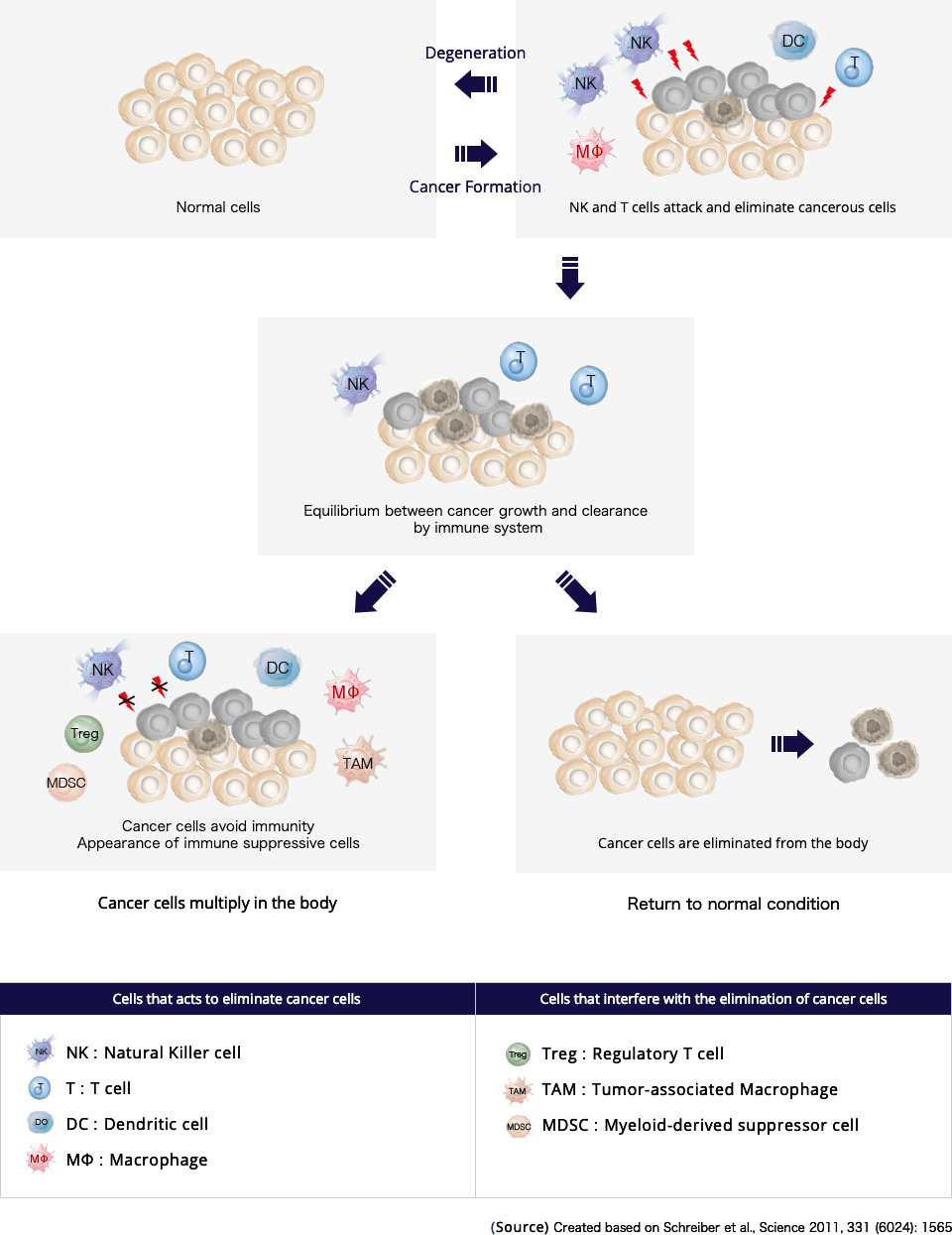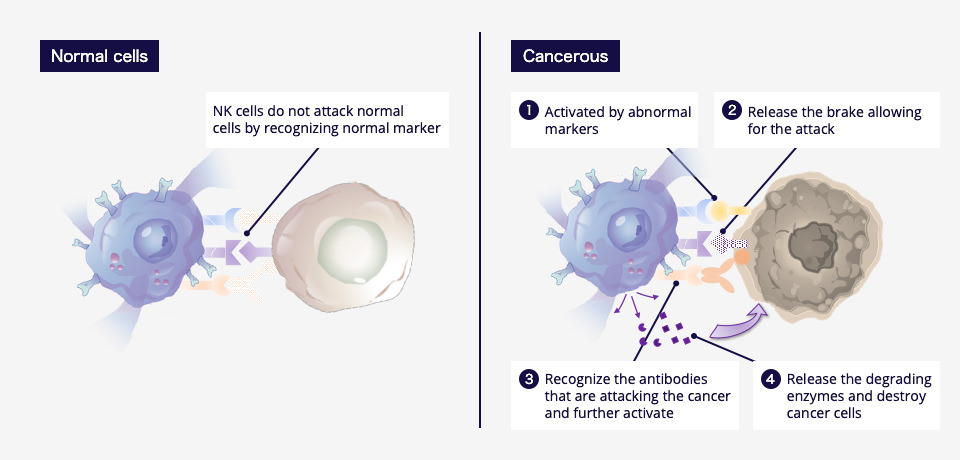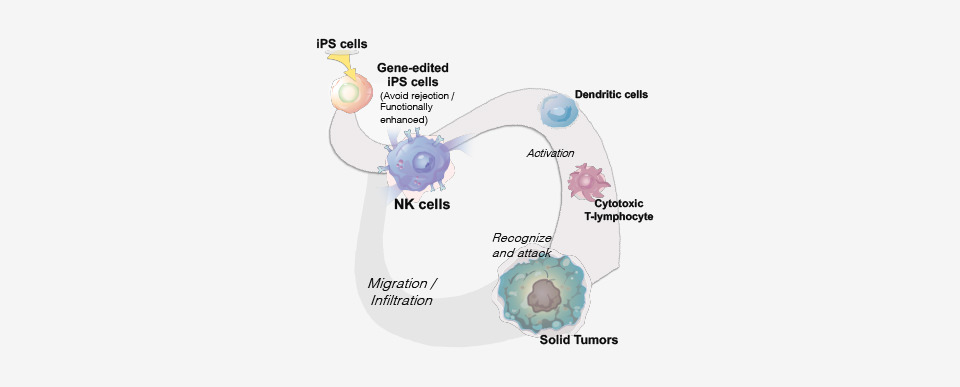- iPS Cell-Derived Gene-Edited NK Cells and Cancer Immuno-oncology
- Cancer and Immunity
- Research and development of iPSC-derived gene-edited NK cells
iPS Cell-Derived Gene-Edited NK Cells
and Cancer Immuno-oncology
Cancer is the leading cause of death in Japan, with approximately 90% of those deaths said to be caused by solid tumors.

In order to target these types of cancers, Healios is currently creating functionally enhanced NK (natural killer) cells developed from gene-edited iPS cells (induced pluripotent stem cells; “iPSCs”) and conducting research and development of their use as an immuno-oncology treatment.
What is Immuno-oncology?
Immuno-oncology is a method of treatment that uses the human body’s own natural immune system to attack cancer cells and suppress their growth.
Cancer and Immunity
Immunity is a defensive function that protects the body by attacking and eliminating pathogens (foreign substances) such as viruses, bacteria, and molds. Along with protecting the body from external pathogens, immunity also works to recognize, attack and eliminate cancer cells that have developed within the body.
Immunity can be divided into two types: innate immunity and acquired immunity. Innate immunity is an inborn mechanism primarily composed of macrophages and NK cells, which are the first line of defense to eliminate unwelcome pathogens and cancer cells inside the body. Acquired immunity is a mechanism mediated by T cells and B cells, which recognize particular foreign substances in the body, and are activated by those specific substances to eliminate them. Cell-mediated immunity via NK cells and T cells is vital to eliminate cancerous cells.
Cancer Fibrillation Mechanism
(Cancer Immunoediting)

Research and development of
iPSC-derived gene-edited NK cells
NK cells, a type of lymphocyte, recognize abnormal cells such as cancer and virus infected cells, attack them directly, and eliminate them from the body.

The iPSC-derived gene-edited NK cells in our research and development pipeline, are NK cells with enhanced intrinsic abilities such as improved anticancer activity using gene editing technology with iPSCs, and are expected to be effective against a broad range of cancers not limited to specific cancer antigens.

